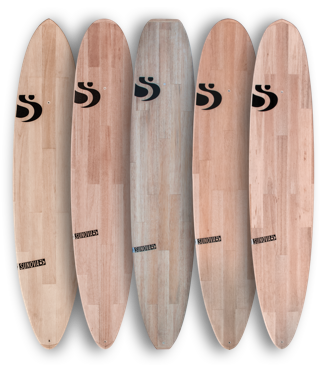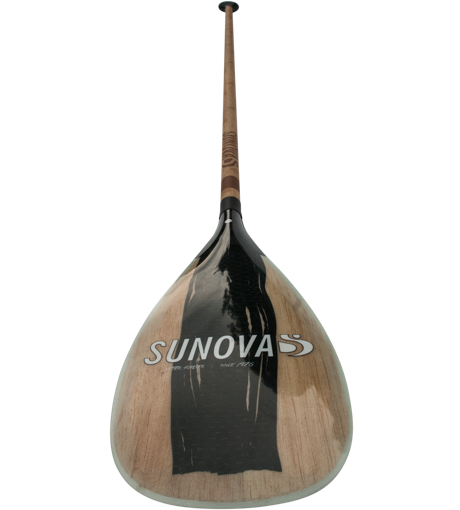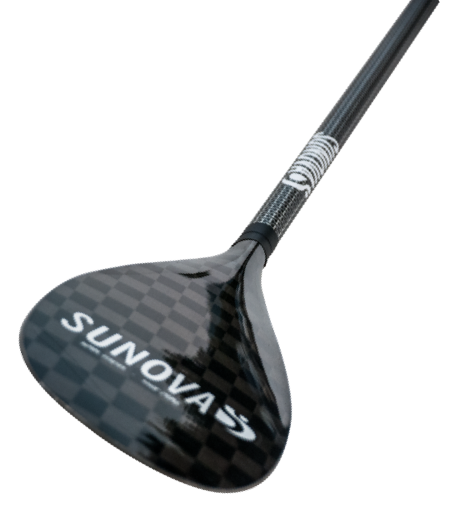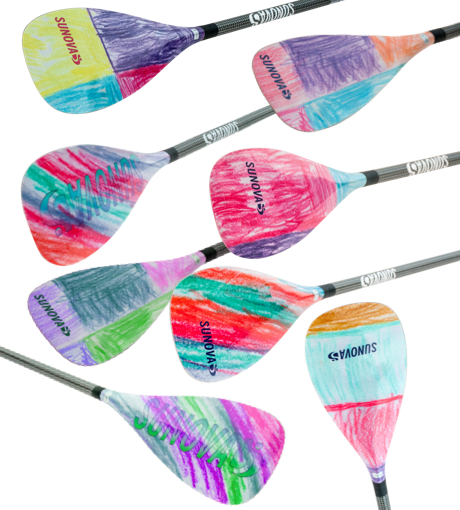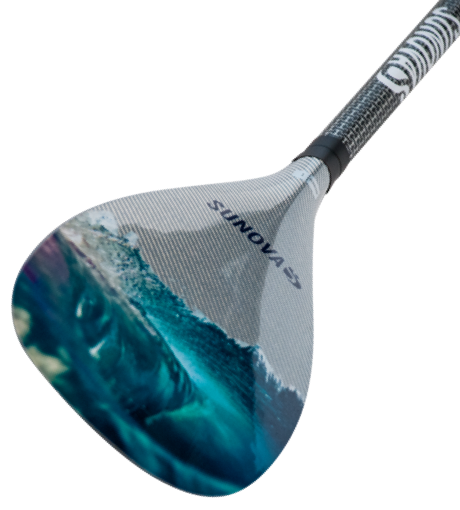Everything in one place
SWELLNET INTERVIEW BY STU NETTLE
Jumping on boards with Bert Burger!
Recently the smoothly curated Sunova Surfboards Instagram feed was invaded by two heathens hell bent on destruction. Bert Burger, a purveyor of plus-sized clothes and the owner of Sunova surfboards was joined by the mallet-wielding Martin Jandke, one of Bert's partners in the company. Together they demonstrated the durability of the soon-to-be-released Suns Surfboards, a label started by Bert's son Dylan.
See the video below, and under that is a short interview with straight-talking Bert about the boards in question:
Swellnet: Are these boards coming out under the Sunova label?
Bert Burger: No chance. A Sunova says Ferrari, Rolls Royce, it's the best surfboard money can buy. No way I would put my label on cheap shit. Now, I'm not saying the boards are shit, but it's a price point and a demographic that just doesn't match with our reputation for strength and performance. Sunova made its name with high end craftsmanship, advanced composite construction, and a classic wood look that performs unbelievably well. That's our niche and I don't want to devalue it.
So why these boards..?
Over the years I've done so much R&D and developed a range of really viable marketable products, but I'd always struggled with what and how to brand them. Firewire got one good technology from me: the original FST construction is a good viable product, but it was never something I wanted to put my Sunova label on.
When my son Dylan expressed interest in creating a label, called SUNS, and he told me roughly what price point he wanted to start with to cut his teeth, I was thinking, 'Here's a perfect place to finally apply all that R&D!'
Anyway, what use is your Dad if you cant press him for a little knowledge and wisdom...?
I've always believed, that regardless of what price point your operating in, you have to represent great value, so the price of these boards will represent amazing value when you compare them to what everyone else if offering for the same money.
They look pretty sturdy in the video. How many layers of glass are laid down? What's the lay up secret..?
OK, OK...I'm not giving away the eleven secret herbs and spices here. It's an EPS core, epoxy resin, fibreglass, wrapped in a secret sandwich.
Have you broken any yet?
We have seriously been trying. Almost two years ago we released this technology in SUP, so we've had them on the market for a while. It was an unknown back then. We gave a bunch of SUPs to a local board hire and rental place, so for years now I'm watching these boards get so much abuse everyday...honestly, people who dont surf have no idea how to treat surf equipment! I was watching our boards get treated like a plastic kayak, but I remained silent because I wanted to see what they could take.
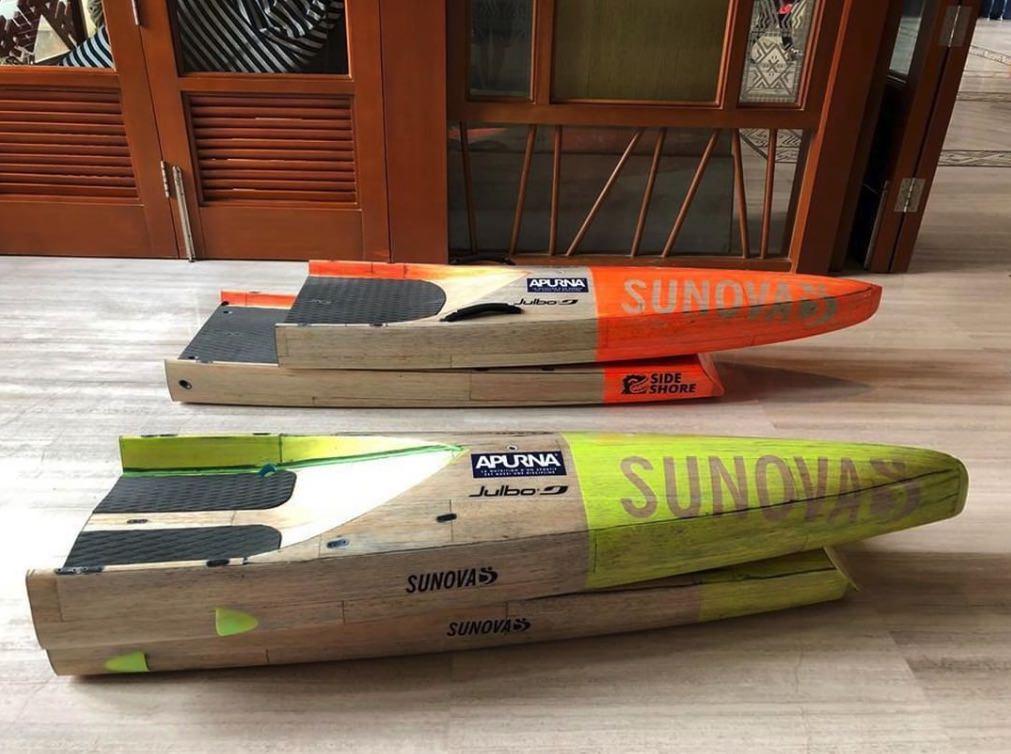
I'm really happy with their durability. There is no doubt that the strongest and lightest stuff around is built using the concept of sandwich construction. That's where you have a double glass job either side of some sandwich medium in between. For example, Firewire FST construction, Surftech Tufflite, and our Sunova boards too, which are fiberglass and resin either side of a balsa sandwich medium, over a lightweight EPS core, and of course dont forget that parabolic rail.
They all use an engineering principal, like the H or I beams, the further apart you can get the load bearing skins, the more structure and strength you get.
The downside, however, to this construction is the price. You have an expensive list of raw materials, you are using twice as much glass, crazy amounts of extra labor, way more production infrastructure is needed, as well as space 'cos a board takes longer to build. If I was still building boards in Australia with this method, I'd be charging AUD $1,800 plus for a shortboard. Making them in Asia means you can compete price-wise and offer better tech at a competitive price.
Well, we have come up with a technique that gives us sandwich construction principles at a crazy affordable price...
In an earlier conversation you said you're not making any grand claims on flex or performance, but could this construction method lend itself to high performance surfing?
Within reason. When we first hit the market we were aiming for 'bullet proof', and coming in about about 12 to 15% heavier than disposable PU boards. But while we were R&Ding the final layup and methods, we came up with some stuff that was a full 20% lighter than disposable PU - like crazy light and strong!
Thing is, it just didn't make sense to hit the market with something so good for the price. The lighter version will come later, with a different look and a little better tech, but there is no reason why they won't perform as good as any other stringerless EPS epoxy shape and glass. So if anyone out there claims performance from hand laid EPS and epoxy, then I suppose we would claim it too.
I don't think people realise how well a board can go when it has serious tech built into it and a parabolic rail. I personally call bullshit on claims of radically better performance when your using the same materials as everyone else.
Definitely some more products, and different constructions, coming. Release number three will be a parabolic rail with a cool new foam made from recycled coke bottles.
This is all so kids coming in at entry level will have something to look forward to as future techs get released.
Stay tuned.
This interview was posted by Swellnet.com here: Jumping on boards with Bert Burger! by Stu Nettle in Design Outline on Wednesday, 27 February 2019.










